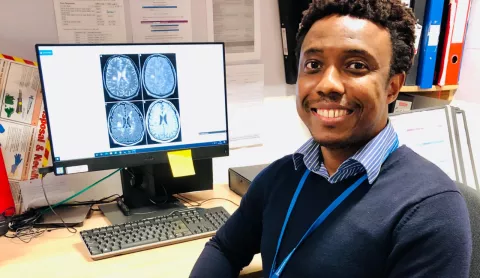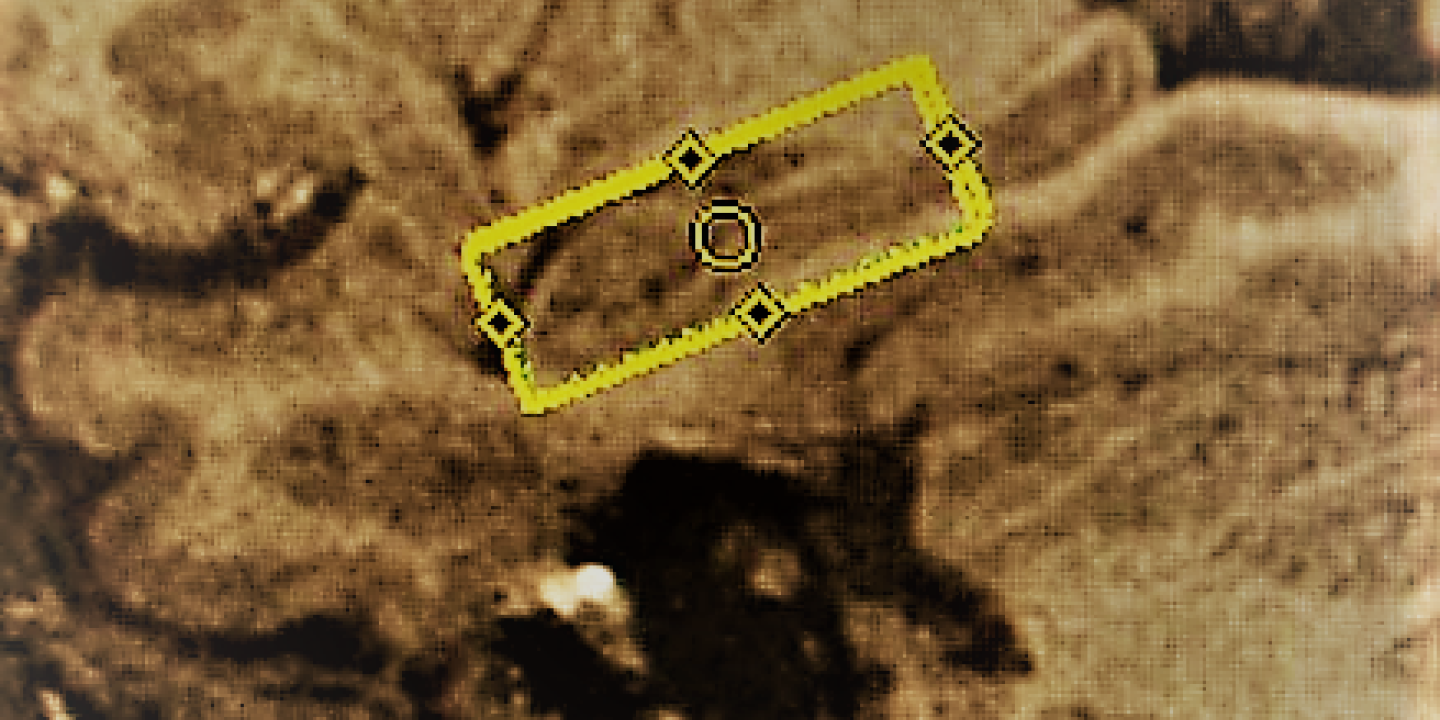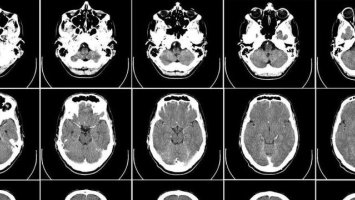
Is depression a symptom of MS?
Dr Prince Nwaubani is a psychiatrist, who recently passed his PhD at Brighton and Sussex Medical School and has been awarded an NIHR Academic Clinical Lectureship at Kings College London. During his PhD, Prince used MRI to investigate the link between brain inflammation and depression in MS.
When I trained as a doctor in West Africa, specialising in psychiatry never occurred to me. I was doing a masters in biotechnology when I met some psychiatrists who suggested it might be a good fit.
My medical license being West African, I had to take more exams, but I got through. Then during training, I began to miss research. So I started looking for ways to combine clinical work with research.
Why is depression so common in MS?
There's lots of research showing over time, more people with MS are experiencing depression. About half experience it at some point during their lifetime. It’s massive.
So why is this? Some would argue we already know the answer. Common sense might indicate, MS is a lifelong condition with really challenging symptoms, so people are bound to sometimes suffer emotionally.
But when researchers looked into it, they found evidence it might not be purely psychological.
Some people find it helps to know the way they’re feeling isn’t solely because of the challenges of living with MS. Depression can be a symptom caused by MS, just like difficulty with balance or vision.
An inflamed hippocampus
Research shows there’s a unique structure in the brain that gets inflamed in MS. And my PhD supervisor was able to show a strong relationship between the inflamed structure and high rates of depression. That structure is called the hippocampus.
It makes sense because if you look at where the hippocampus is in the brain, it has lots to do with our emotions. And the hippocampus is a target for inflammation. It often gets injured when the brain gets inflamed, which has a knock-on effect on emotions.
New MRI techniques
We’re using MRI to compare what we see in the hippocampus when people are newly diagnosed vs. after they’ve started taking a disease modifying therapy (DMT).
Historically, we haven’t been able to see what’s going on inside of the hippocampus. This is because it’s very complex. So we developed new MRI techniques that make it easier to detect small changes in the brain in MS. The small changes were mostly seen in people with primary progressive MS. We suspect this is due to the build-up of water within the hippocampus which can happen during inflammation, especially in people with primary progressive MS.
There’s other research going on linking brain inflammation with depression. But the MRI approach makes our study unique

DMTs might reduce depression
In a small study with five people with relapsing remitting MS, we looked at whether the DMT ocrelizumab (Ocrevus) influenced depression. We found people who took ocrelizumab had fewer depressive symptoms.
This could suggest DMTs might help people who are experiencing depression as a symptom of their MS. But this has only been tested in a small number of people, so we’ll need to do more research with a greater number of people to be sure about this.
High rates of depression in relapsing remitting MS
We also found people with relapsing remitting MS had higher rates of depression than people with primary progressive MS.
This was surprising because we initially expected rates of depression to be higher in primary progressive MS. This is because people with primary progressive MS often experience more disability and disease progression.
We think our finding that rates of depression were higher in relapsing remitting MS could be explained by higher levels of inflammation in people with this type of MS. This supports our theory that depression might be a symptom of MS caused by inflammation.
What’s next?
The next step would be to do a bigger trial to test if DMTs really improve depression in people with MS. We hope more research will show that DMTs aren’t just reducing the levels of inflammation in the brain, but can also treat the depression - that's big!
In the long run I hope this means people with MS will have more treatment options for depression. I also hope some of these fantastic new imaging methods can be used in the hospitals for faster and more precise detection of MS. And more generally, that this research helps us to understand a bit more about what happens in the brain during MS, and in depression.




